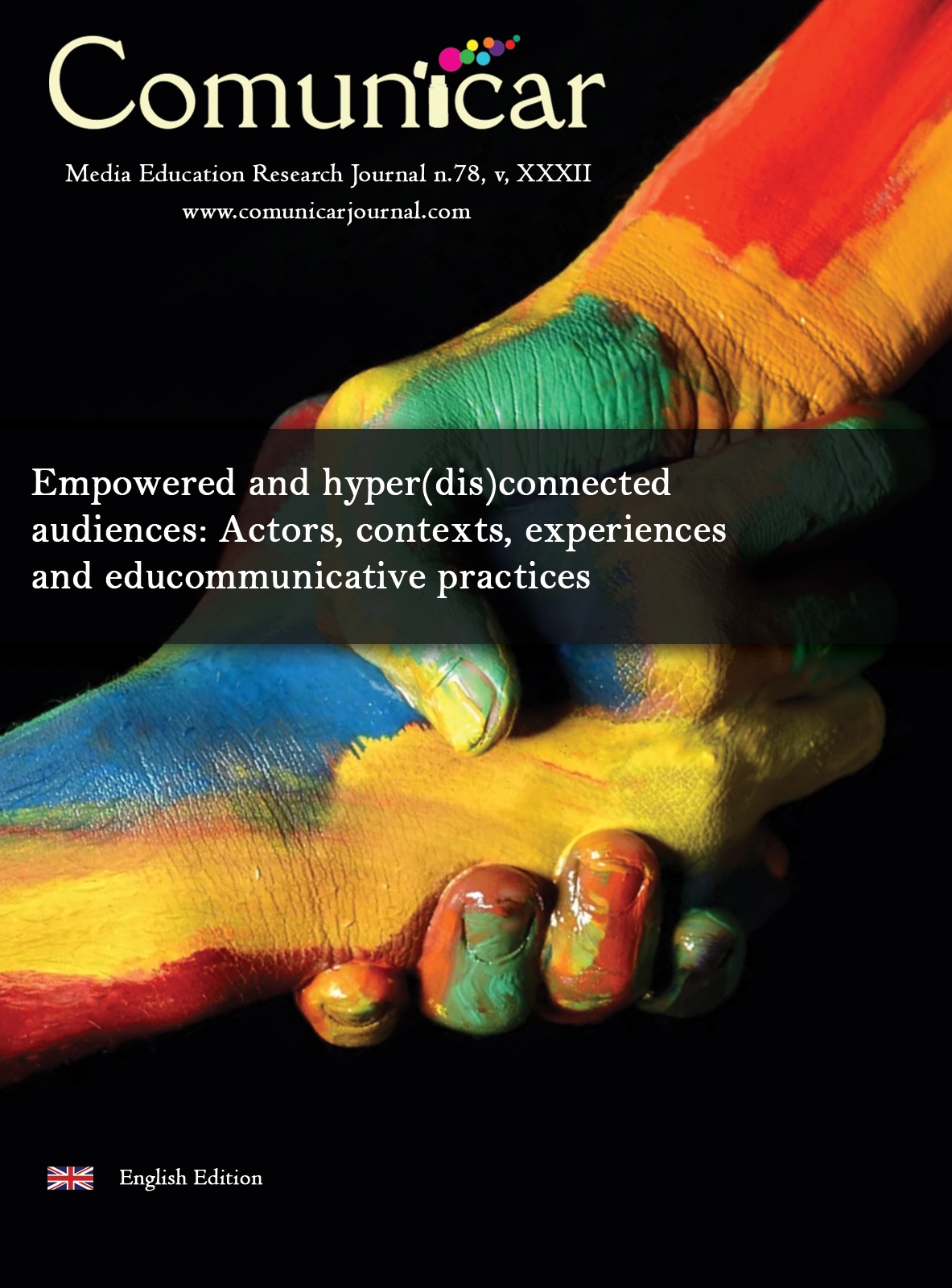Communication bibliometric research in Latin American scientific journals (2009-2018)
IF 5.1
1区 文学
Q1 COMMUNICATION
引用次数: 3
Abstract
The objective of this article is to analyze the distinctive characteristics of research production in the field of communication in Latin American scientific communication journals. Meta-research is necessary because it allows re-evaluating the field and offers new horizons in knowledge production. Two studies were conducted: 1) Bibliometric analysis of 116 journals in eight databases and 24 publications in the Web of Science and Scopus; 2) Content analysis including that of 407 articles over a period of 10 years (2009–2018). The findings demonstrate a research trend in the Latin American region toward international standards, evidenced by a preponderance of empirical over essay studies. Universities in the region published most of the journals in the field and circulation was predominantly biannual. Contrary to expectations, the most widely disseminated topic was health communication, partly owing to a large sample of Brazilian journals. Within the empirical research, the qualitative approach was predominant. The interview was the most widely used research method in the region. Finally, the most used theories were agenda setting and framing. Imminent challenges arise, i.e., to strengthen indigenous theoretical production and to position the region's themes and reflection more decisively in knowledge production at a global level. El objetivo del presente artículo es analizar las características distintivas de la producción de investigación en el campo de la comunicación en las revistas científicas de comunicación latinoamericanas. La meta-investigación es necesaria, ya que permite revaluar el campo y ofrecer nuevos horizontes en la producción de conocimientos. Se realizaron 2 estudios: 1) Análisis bibliométrico a 116 revistas presentes en ocho bases de datos, y luego a 24 publicaciones presentes en Web of Science y Scopus; 2) Análisis de contenido, que incluye el análisis de 407 artículos en un periodo de 10 años (2009-2018). Los hallazgos demostraron una tendencia en la investigación en Latinoamérica a los estándares internacionales, evidenciada en la preponderancia de los estudios empíricos sobre los ensayísticos. Las universidades de la región editan la mayoría de las revistas del campo y predomina la circulación semestral. Contrario a las expectativas, la temática más difundida fue comunicación en salud, en parte por la muestra amplia de revistas brasileñas. Dentro de la investigación empírica predomina de manera amplia el enfoque cualitativo. La entrevista es el método de investigación más usado en la región. Finalmente, las teorías más usadas en Latinoamérica fueron el establecimiento de la agenda y el enmarque. Surgen desafíos inminentes: fortalecer la producción teórica autóctona y posicionar la reflexión y las temáticas de la región de manera más decida en la producción de conocimiento en el concierto global.拉丁美洲科学期刊的传播文献计量学研究(2009-2018)
本文的目的是分析拉丁美洲科学传播期刊传播领域研究生产的独特特征。元研究是必要的,因为它可以重新评估该领域,并为知识生产提供新的视野。进行了两项研究:(1)对8个数据库中的116份期刊和科学与Scopus网站上的24份出版物进行了文献计量分析;2) 内容分析,包括10年内(2009-2018年)407篇文章。这些发现表明,拉丁美洲地区的研究趋向于国际标准,实证研究优先于散文研究就证明了这一点。该地区的大学出版了该领域的大多数期刊,发行量主要为半年一次。与预期相反,传播最广泛的主题是健康传播,部分原因是巴西报纸的大量样本。在实证研究中,定性方法占主导地位。采访是该地区使用最广泛的研究方法。最后,最常用的理论是议程设定和框架。迫在眉睫的挑战出现了,即加强土著理论生产,定位该区域的主题,并在全球一级更果断地反映知识生产。本文的目的是分析拉丁美洲传播科学期刊传播领域研究成果的特点。元研究是必要的,因为它可以重新评估该领域并为知识生产提供新的视野。进行了2项研究:(1)对8个数据库中的116种期刊进行了文献计量分析,然后对《科学》和《Scopus》网站上的24种出版物进行了文献计量分析;2) 内容分析,包括分析10年(2009-2018年)内的407篇文章。这些发现表明,拉丁美洲的研究有遵守国际标准的趋势,实证研究对散文家的优势就证明了这一点。该地区的大学编辑该领域的大多数期刊,半年期发行占主导地位。与预期相反,传播最广泛的主题是健康传播,部分原因是巴西杂志的广泛样本。在实证研究中,定性方法占主导地位。采访是该地区最常用的研究方法。最后,拉丁美洲最常用的理论是制定议程和框架。迫在眉睫的挑战出现了:加强本土的理论生产,并在全球音乐会的知识生产中更加坚定地定位该地区的反思和主题。
本文章由计算机程序翻译,如有差异,请以英文原文为准。
求助全文
约1分钟内获得全文
求助全文
来源期刊

Comunicar
Multiple-
CiteScore
10.10
自引率
5.40%
发文量
40
审稿时长
20 weeks
期刊介绍:
Comunicar specialized in educommunication: communication and education, ICT, audiences, new languages...; monographs specialized in current issues. Double format: printed and online; digitally, accessible in full text, free of charge, for the entire scientific community and researchers around the world. Coeditions printed in Spanish and English for the whole world. Published by Oxbridge Publishing House which collaborates with many international centres and universities.
 求助内容:
求助内容: 应助结果提醒方式:
应助结果提醒方式:


